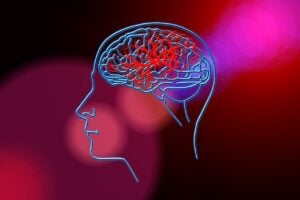A medication produced by the Merck (NYSE: MRK) pharmaceutical firm, (known as MSD outside the United States and Canada) is approved by the U.S. Food and Drug Administration (FDA) for prescribing information for BELSOMRA® (suvorexant) C-IV that includes findings on the drug’s use for the treatment of insomnia in patients with mild-to-moderate Alzheimer’s disease.
Insomnia is a sleep disorder that can make it difficult to fall asleep and/or stay asleep, or it can cause people to wake up too early. Many factors contribute to insomnia, including evidence suggesting that wake-promoting signaling overrides sleep-promoting signaling in the brain.
Insomnia is more common in people with Alzheimer’s disease than in individuals who do not have Alzheimer’s disease.
BELSOMRA (suvorexant) is an all-purpose sleep drug that has also been tested in Alzheimer’s patients for safety and efficacy. It is indicated for the treatment of insomnia characterized by difficulties with sleep onset and/or sleep maintenance.
The medication is a first-in-class oral orexin receptor antagonist. Orexin is a neurotransmitter found in a specific part of the brain that can help keep a person awake. The mechanism by which BELSOMRA exerts its therapeutic effect is presumed to be through antagonism of orexin receptors.
“Alzheimer’s disease is often accompanied by disruptions to an individual’s sleep-wake patterns and overall difficulty sleeping,” said Dr. W. Joseph Herring, associate vice president, Global Clinical Research, Neuroscience, Merck Research Laboratories.
“We’re pleased that the prescribing information for BELSOMRA includes findings from Merck’s first dedicated study of an insomnia medication in patients with mild-to-moderate Alzheimer’s disease.”
The findings of a randomized, double-blind, placebo-controlled, parallel-group, multi-site 4-week polysomnography trial of BELSOMRA in patients with mild-to-moderate Alzheimer’s disease were published online in Alzheimer’s & Dementia: Journal of the Alzheimer’s Association.
In the study, BELSOMRA exhibited a statistically significant improvement for both Total Sleep Time (TST) and Wake After Sleep Onset (WASO) measures, compared to those treated with placebo, as assessed objectively by polysomnography.
Adverse reactions occurring ≥2% and greater than placebo were somnolence (4% compared to 1% for placebo), dry mouth (2% compared to 1% for placebo), and falls (2% compared to 0% for placebo). The results were originally presented at the 2019 American Academy of Neurology Annual Meeting.
SOURCE:











